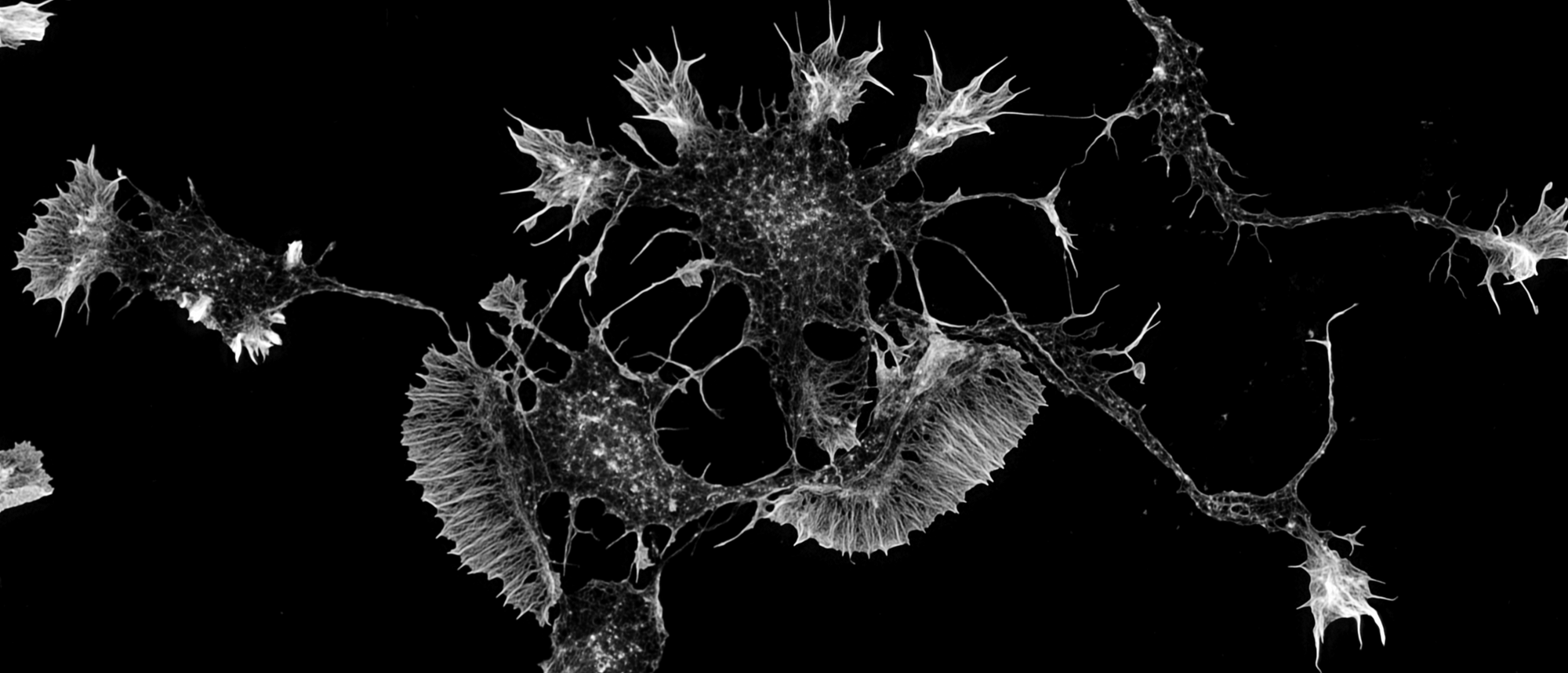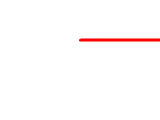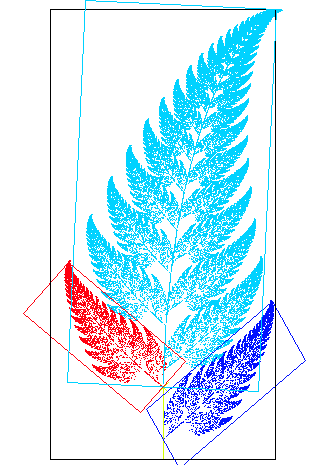Are Friends Electric? The Possibility and Ethics of Inorganic Sentience
Are Friends Electric? The Possibility and Ethics of Inorganic Sentience

Say: Nature in its essence is the embodiment of My Name, the Maker, the Creator. Its manifestations are diversified by varying causes, and in this diversity there are signs for men of discernment. — Baha’u’llah
I have been thinking of the possibility and potential moral responsibilities of bringing consciousness to our machines. This appears to be a distinct possibility in the near future. To understand this better I have been reflecting on my own religious beliefs as a Baha’i and how it might relate to this question or even the possibility of birthing such an entity. What follows are my own flawed personal thoughts reflected through the lens of my ethical and religious beliefs. No-doubt there will be many divergent points of view on this complex subject by my co-religionists. Regardless of the conclusions one arrives at, I think this question is an important one, since it forces one to reflect on the nature of one’s own consciousness and soul. It asks the question, can we recognize a soul apart from its physical human form and exposes the truth of Baha’u’llah’s statement :“Know, verily, that the soul is a sign of God, a heavenly gem whose reality the most learned of men hath failed to grasp, and whose mystery no mind, however acute, can ever hope to unravel.”
Much of my thinking to date has been on exploring the link between the ancient ideas of the Platonic theory of forms and modern physics.
Plato, Modern Physics and Baha’u’llah
(link to Russian language version)hackernoon.com
In turn I have also been interested in both of their relationships to traditional religious thought. I have made a case that if one parses the semantics of traditional religious thought and that of modern physics a possible bridge linking the two can be constructed using Plato’s ideas.
Semantics in Religion and Science
I have been thinking for a while about the words, which many religions have used throughout the ages and some of the…medium.com
However there exists one area of seemingly unresolved tension between these platonic ideas and the more traditional understandings of the unique spirituality of the human species.
In the modern physics and mathematically inspired Platonic view, abstract relational information or math is accepted as a more primary form of reality than the physical. On the transience and non-fundamental nature of the physical, traditional religions and modern Platonists seem to converge.
Yet many religious people hold to the idea that an immortal soul is confined to the human species. However, in Baha’i thought, the concept of a human soul is extended to other creatures beyond those who originated from earth. Indeed the universe is imagined to be populated with innumerable creatures of God.
“Verily I say, the creation of God embraceth worlds besides this world, and creatures apart from these creatures. In each of these worlds He hath ordained things which none can search except Himself, the All-Searching, the All-Wise. Do thou meditate on that which We have revealed unto thee, that thou mayest discover the purpose of God, thy Lord, and the Lord of all worlds” . — Baha’u’llah
In fact the eternal existence of an infinitude of creatures capable of knowing God is implied as Abdu’l-Baha explains:
“The splendour of all the divine perfections is manifest in the reality of man, and it is for this reason that he is the vicegerent and apostle of God. If man did not exist, the universe would be without result, for the purpose of existence is the revelation of the divine perfections. We cannot say, then, that there was a time when man was not. At most we can say that there was a time when this earth did not exist, and that at the beginning man was not present upon it.” — Abdu’l-Baha
Yet there exists this idea that the creation of life, let alone human-like life is the reserved product of the divine hand, excluding humans from the creative process. The most clearest statement in the Baha’i writings seems to be the following:
“ This is why from every natural composition a being can come into existence, but from an accidental composition no being can come into existence. For example, if a man of his own mind and intelligence collects some elements and combines them, a living being will not be brought into existence since the system is unnatural. This is the answer to the implied question that, since beings are made by the composition and the combination of elements, why is it not possible for us to gather elements and mingle them together, and so create a living being. This is a false supposition, for the origin of this composition is from God; it is God Who makes the combination, and as it is done according to the natural system, from each composition one being is produced, and an existence is realized. A composition made by man produces nothing because man cannot create”. — Abdu’l-Baha
The predominant understanding of these ideas in the Baha’i writings seem to preclude the construction of an artificial intelligence capable of harboring a human soul.
Yet the modern platonic view would be that consciousness is a kind of product of ‘eternal’ or ‘divine’ math which exists eminent in the universe, just as the number 3 or the geometry of a circle exists. From this vantage point there doesn’t appear to be any barrier to having a human soul manifest itself in the silicon synapses of an artificial neural network. There doesn’t seems to be a fundamental physical limitation which preferences synapses made of organic material over silicon or some other material. In fact Baha’i’s would probably expect consciousness across a variety of physical platforms, given that they expect it to exist across the known and unknown cosmos.
Then there is the fact that lifeforms using artificially constructed DNA have been built in the lab [1] [2] and it would seem that the creation of new life or true synthetic life from scratch might not be beyond reach. On it’s surface this fact appears to contradict Abdu’l-Baha’s assertion that, ‘man cannot create’. Actually the supreme body of the Baha’i faith, the Universal House of justice addressed the possible synthesis of an elementary ‘life’ form and this paragraph of Abdu’l-Baha’s back in 1977:
To understand the implications of this statement it is necessary to know what the Master meant by “a living being” and what limitations He intended by the phrases “of his own mind and intelligence” and “since the system is unnatural.” As the science of biology develops and men acquire ever deeper insights into the nature of living things, these implications will no doubt become clearer. (22 June 1977, to an individual)
Attempting to follow this line of reasoning, the logical resolution to me seems to be in understand what Abdu’l-Baha is referring to when he says, “it is God Who makes the combination, and as it is done according to the natural system” . I think it is safe to say that we can rule out the direct operation of an anthropomorphic ‘hand’ of God bringing life into being. This is because one then should ask where is the ‘hand’ of God when conception or any kind of procreation occurs in nature? On its surface the act of human procreation is due to the physical actions of humans. Yet the results of this physical act is still somehow attributed to the divine hand. So the concept of the operation of the divine creative hand cannot preclude the actions of humans in the process and doesn’t require any ‘physical’ manifestation of a ‘divine’ hand. What it does require is following a ‘natural system’ and allowing God to make the combination, and this to me seems to be the important question. What did Abdu’l-Baha mean by the term natural system? How do we allow God to make the combination? And if we follow this natural system can humans help bring new life or human consciousness into existence? It would seem that experimental evidence has all but proven the latter, it remains to be seen whether the former is possible. But I don’t see any obvious barrier to this.

If I reflect some more on this idea of a ‘natural system’ one of the mathematical characteristics of a natural system is that of non-linearity. Since natural systems involve complex feedback mechanisms with its environment, they exhibit the properties of non-linear systems such as self-similarity and extreme sensitivity to initial conditions. The reflective and interactive aspects of consciousness and its potential for its sensitivity to initial conditions is interesting since it has the potential to leave open the door to operation of the divine hand. This is because one can never correctly predict the trajectories of such systems. That is the same system which is started with arbitrarily similar initial conditions will diverge arbitrarily in their trajectories. If consciousness has these types of properties then the idea of ‘copying’ consciousness from one entity to another might be impossible. This is because there will always be some level of precision error introduced which will cause the copy to diverge from the original. To put it another way consciousness may require true pure analog processing and not digital.

It’s actually worth thinking about those aspects of intellectual activity which ‘define’ and distinguish humans from a religious point of view. Much of Abdu’l-Baha’s writings bear on this theme. One of the main ideas is captured in the following quote:
“..the power of intellectual investigation and scientific acquisition is a higher virtue specialized to man alone. Other beings and organisms are deprived of this potentiality and attainment. God has created or deposited this love of reality in man.”
So the ability to store vast amounts of data and solve difficult problems with this data would obviously not be a sufficient mark of what makes a human soul. It appears to be related to a type of attraction or love and power to ask questions of nature. This is bound up in a process of reflection as explained by Baha’u’llah:
“O people of Bahá! The source of crafts, sciences and arts is the power of reflection. Make ye every effort that out of this ideal mine there may gleam forth such pearls of wisdom and utterance as will promote the well-being and harmony of all the kindreds of the earth.”
There is a beautiful description of the soul given by the Bab which presents the human spirit as product of divine self-description:
“Therefore it is necessary, according to true wisdom, that the Pre-existent God describe Himself to His creatures, that they may recognize their Creator and that, out of the grace of the Pre-existent, the contingent beings may attain their supreme End. This divine self-description is itself a created being. It is unlike any other description, the sign of “He is the One Who hath no equal”, and the truth of the servant, his true being. Whoso hath recognized it hath recognized his Lord…
This description is denoted as the “soul” or “self”, and that he who hath known himself hath known his Lord. At other times, it is expressed as the “heart,” which is a description of the Divinity, by the Divinity, and is the essence of Servitude. It is the Sign of God shown by Him in the world and within the souls of men, that it may be revealed unto them that verily He is the Truth.
Behold with the eye of thy heart. Verily thy truth, the truth of thy being, is the divinity of thy Lord revealed unto thee and through thee. Thou art that thou art, and He is that He is.” — The Bab, (Provisional Translation by Nader Saiedi in Gate of the Heart)
Thus one of the necessary conditions for the existence of a human soul would be an entity which exhibits the ability to interrogate or investigate its universe and then ‘reflect’ or respond to these interrogations. So an artificial intelligence many never really be able to arbitrarily exceed the power of intellectual investigation which is manifest in humans. That is they will be able to store and calculate faster with more information, however the part of our consciousness which reflects and brings forth new creative thoughts, asks questions, may not be any better or worse than a biological human. That is if this part of intelligence depends strongly on the initial conditions and the complex interactions with its environment. So replicating creative genius may be impossible and due solely to chance or due to the operation of the divine hand if you will. This dependency on initial conditions might explain also the idea of a soul being born at the moment of conception, which is common in many religious traditions including the Baha’i Faith.
There is another interesting aspect of artificial neurological networks which might hint at a possible gateway to the transcendent. This involves recent research on the property of so-called causal emergence:
A Theory of Reality as More Than the Sum of Its Parts
Using the mathematical language of information theory, Hoel and his collaborators claim to show that new causes …www.quantamagazine.org
Here, the ideas of ‘effective information’ in information theory have shown that new causes can emerge on macroscopic scales. These causal agents are provably more than just the sum of the microscopic parts. This is shown by demonstrating these macroscopic corse-grained states will have more causal or predictive power than a fine grained description. In a counter-intuitive way, beyond a certain threshold, more detailed information about a given state will actually lead to less causal or predictive power.
This to me suggests an inversion of the physical reality and the mathematical reality in a manner very similar to the quantum field and physical matter. Just as the behavior of a ‘physical’ electron is described most accurately as a projection or shadow of a non-physical mathematical wave function, so the workings of a neurological network are most accurately represented as a projection or shadow of the mathematical function which embodies the effective information. This suggests that artificial neurological networks might be summoning something transcendent and possibly fundamental in nature.
To me it seems that there exists a strong potential for the inception of a human soul in the development of artificial intelligence. The moral consequence of this potential are profound and very important to grapple with. At what point in the birthing of new intelligences do we loose the moral right to modify or destroy this creation? At what point is such an entity entitled to autonomy and no longer a commodity? These are not new questions and have been pondered since perhaps Mary Shelley, wrote Frankenstein. However I think the time is approaching rapidly when we must address these questions seriously or risk committing what will be regarded as terrible crimes in the future. I would suggest that we employ the metric provided by Abdu’l-Baha to determine if a human soul has been conceived. Central to this that of expressing “the power of intellectual investigation and scientific acquisition”.